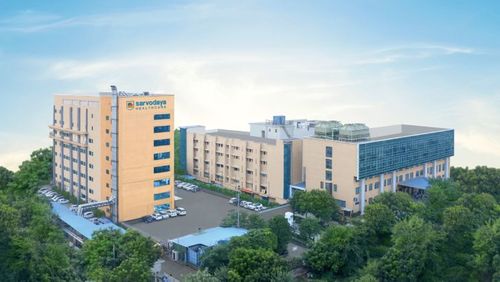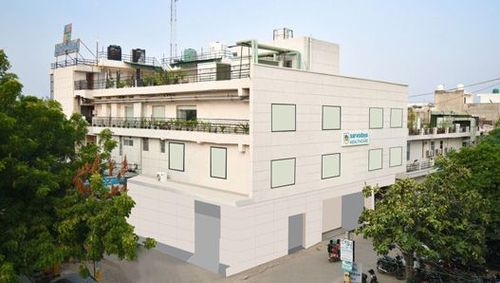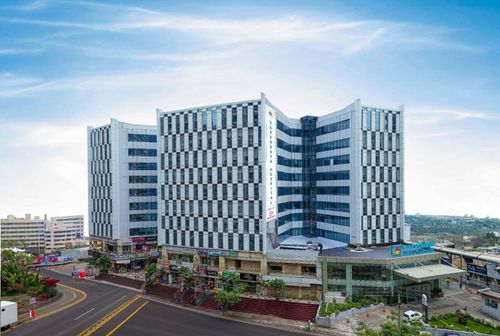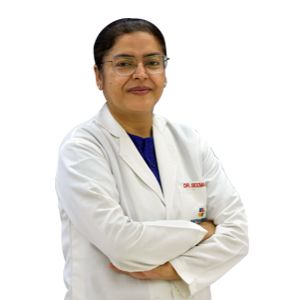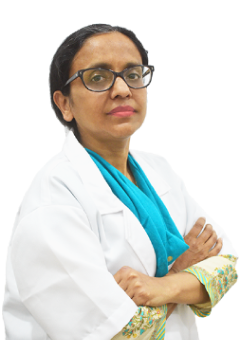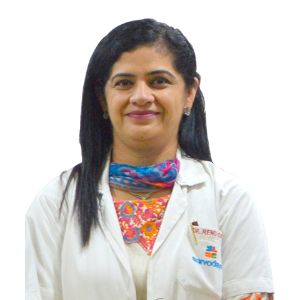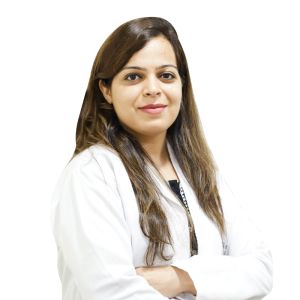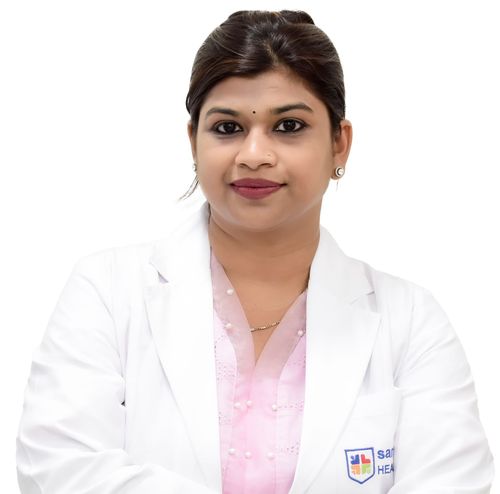Overview
Polycystic Ovarian Syndrome (PCOS) or PCOD is a complex hormonal disorder that disrupts the balance of reproductive hormones in women, often leading to irregular periods, acne, excessive hair growth, and thinning hair. This condition not only affects menstrual health but can also contribute to metabolic problems like insulin resistance, weight gain, and an increased risk of diabetes and heart disease.
Managing PCOS is challenging and usually requires ongoing lifestyle adjustments and medical care. At Sarvodaya Hospital, we specialise in pcod problem treatment in Faridabad, offering expert diagnosis, tailored therapies, and holistic support to help women achieve optimal health and well-being.
Symptoms of Polycystic Ovary Syndrome (PCOS)
- Irregular or absent menstrual cycles
- Excessive facial and body hair growth
- Acne and oily skin
- Dark patches on the skin
- Thinning hair or hair loss
- Weight gain and difficulty losing weight
- Insulin resistance and signs of metabolic syndrome
- Mood swings, anxiety, depression, and low self-esteem
- Fertility issues and difficulty conceiving
Causes of Polycystic Ovary Syndrome (PCOS)
- Hormonal imbalance; elevated androgens, insulin resistance
- Anovulation (infrequent or lack of ovulation)
- Family history and genetic predisposition
- Environmental factors (stress, pollution)
- Lifestyle factors (diet, obesity, inactivity)
- Increased androgens aggravate symptoms (hirsutism, acne, alopecia)
Diagnosis of Polycystic Ovary Syndrome (PCOS)
Diagnosing PCOS at Sarvodaya Hospital is a stepwise, comprehensive process to ensure accuracy and personalised care. Our team, based at a Leading gynaecology Hospital in Faridabad, Delhi NCR, uses advanced diagnostics for a clear understanding of each patient’s condition.
- Review of medical/family history and symptom questionnaire: We start by understanding your complete health background, family history, and symptoms through detailed discussions and validated questionnaires.
- Physical examination (weight, BMI, hair growth, acne, skin changes): A focused examination checks for signs like excess hair growth, acne, skin darkening, and records weight/BMI, highlighting typical features of PCOS.
- Blood tests: Laboratory analysis measures key hormones, checks for insulin resistance, and screens thyroid and pituitary function for a holistic assessment.
- Glucose tolerance test (for insulin resistance/diabetes risk): This test screens for insulin resistance and diabetes risk, common metabolic complications in women with PCOS.
- Exclusion of other causes for similar symptoms: We rule out other conditions (such as thyroid disorders or adrenal problems) to ensure a confident and accurate diagnosis.
Treatment for PCOS / PCOD Management
- Lifestyle modification: Our team emphasises a low-glycemic, high-fibre diet rich in omega-3s and magnesium, along with regular exercise, good sleep hygiene, yoga, and meditation for stress reduction—all of which can significantly improve hormonal and metabolic health.
- Medical management: Hormonal therapies (like oral contraceptives), anti-androgens for excess hair or acne, and ovulation-inducing medications are prescribed as needed to regulate cycles and combat symptoms.
- Management of insulin resistance and metabolic complications: Targeted therapies address insulin resistance and help manage risks for obesity, diabetes, and cardiovascular issues, a key focus in PCOS treatment.
- Mental health support: We provide professional counselling and therapy services to address anxiety, depression, and low self-esteem, supporting overall well-being.
- Holistic and complementary therapies: Sarvodaya offers ayurvedic treatment for PCOD and other complementary approaches alongside Western medicine, recognising the value of holistic care in managing both symptoms and root causes.
Prevention & Lifestyle Modification
Preventing and managing PCOS starts with small, sustainable lifestyle choices. At Sarvodaya Hospital, our team, recognised as a world-class Gynaecologist in Faridabad, emphasises the following strategies for better hormonal health and overall well-being:
- Maintain a healthy weight (even a 5–10% loss can help): Modest weight reduction can significantly improve hormone balance and symptom control in PCOS.
- Early detection through routine check-ups and blood tests: Regular gynaecological exams and laboratory tests enable the timely identification and management of PCOS, reducing the risk of complications.
- Focus on a whole-food, low-sugar diet: Choose fresh fruits, vegetables, whole grains, lean proteins, and limit sugary, processed foods to stabilise insulin levels and hormones.
- Regular exercise: Consistent physical activity, such as brisk walking, yoga, or strength training, improves metabolism, weight management, and insulin sensitivity.
- Avoidance of endocrine disruptors: Limit exposure to chemicals in plastics, cosmetics, and household items to support natural hormone function.
- Stress management techniques: Incorporate mindfulness, meditation, or relaxation practices to keep cortisol in check and foster emotional balance.
Pre and Post-Treatment Lifestyle Modifications for PCOS
Pre-treatment:
- Your journey begins with a detailed evaluation by our specialists at the Leading Gynaecologist in Delhi NCR, Faridabad, establishing clear goals for healthy weight and tailored lifestyle changes.
- We help you build a network, family, friends, and nutrition/fitness experts to encourage lasting dietary and physical activity habits.
- Early focus on quality sleep and emotional well-being lays the foundation for more effective, sustainable PCOS management.
Post-treatment:
- Our team provides continuous guidance on balanced eating and consistent exercise, adjusting your plan as your needs evolve.
- Regular check-ups for weight, blood sugar, cholesterol, and hormone levels ensure effective progress and timely intervention if needed.
- Continuous access to counselling and sleep hygiene advice helps you maintain resilience, motivation, and emotional health throughout your PCOS journey.


